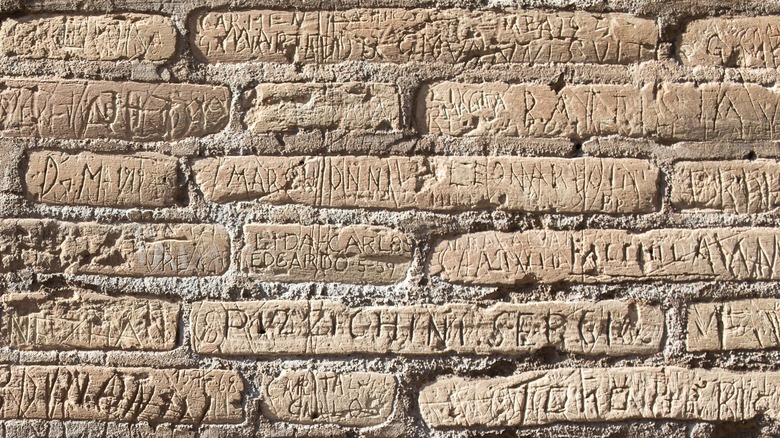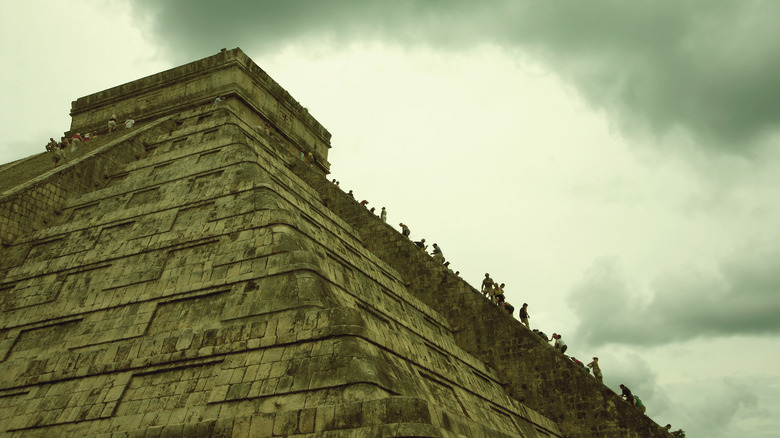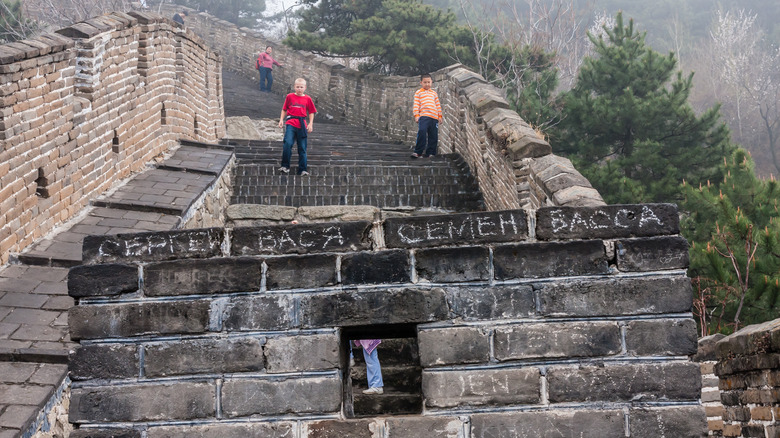One of the unfortunate byproducts of tourism is the damage that wayward sightseers can cause to cultural, historical, and natural landmarks around the world. This runs the gamut from monuments that people have deliberately defaced to places that have just suffered from a surge in travel interest and too much foot traffic.
In 2023, a spate of incidents saw tourists making headlines for all the wrong reasons, with several different people carving their names or initials into multiple landmarks in Italy alone. If it was just one incident, you might argue that the person got caught up in the moment and didn’t realize the gravity of what they were doing, but in this case, it’s as if a wave of copycat crimes unfolded. British, Swiss, and German tourists were caught leaving their mark (literally) on the Colosseum in Rome three separate times in under a month. Their example followed that of an Irish citizen who did the same thing back in 2020.
While celebrating its 850th birthday in 2023, the Leaning Tower of Pisa wasn’t safe, either, as police later apprehended a French teen for carving a heart with initials there. In Venice, meanwhile, the canal city narrowly evaded making UNESCO’s list of World Heritage in Danger sites due to factors like overtourism. With global tourism rebounding to pre-pandemic levels, and overtourism poised to be a more upsetting travel nuisance than ever, it’s worth remembering some cautionary tales of travel gone wrong to keep the same disturbances from happening again.
From Italy to the Great Wall of China and Luxor Temple

Italy isn’t the only place where tourists have scrawled their names on ancient monuments like the inside of a restroom stall. The Great Wall of China has been subject to everything from graffiti like, “Alex wuz here,” to the more serious case of two Mongolian men plowing a shortcut through the wall with some heavy machinery. In 2014, authorities even went so far as to designate graffiti zones along the Great Wall, in an effort to contain the problem to one area where people could write on plastic instead of the wall itself. The year before, a Chinese teen provoked online outrage at home and abroad when they vandalized Egypt’s Luxor Temple with the words “Ding Jinhao was here.”
These stories share a common thread in that they’re all incidents where visitors to a foreign country forgot the first basic rule of being a guest: namely, mind your manners. If nothing else, the instinct for self-preservation should de-incentivize acting out, since the ubiquity of phone cameras makes it likelier that a viral stunt could land you in the internet hall of shame (as with the Luxor Temple case). That’s not the only potential consequence, as tourists could also get slapped with a hefty fine or even face jail time in a country where the law is stricter than what they’re used to back home. For the Colosseum incident, it was over $16,000 and up to five years in prison.
Chichen Itza, Easter Island, and more

For tourists who desecrate centuries-old landmarks, the threat of hostility is sometimes more immediate. Like the Colosseum, Mexico’s must-visit archeological site, Chichén Itzá, fell prey to a series of incidents in the 2020s where three different people got in trouble for ascending the pyramid El Castillo’s steps. As they climbed down from the off-limits area, they were jeered by an angry crowd, hit with sticks, and pelted with bottles.
Easter Island’s mayor once called for a tourist to lose his ear in return for chipping an ear off one of the island’s famous stone statues. The tourist kept his ear but still had to pay a $17,000 fine. In America, two ex-Boy Scout leaders similarly landed in court for knocking over a Jurassic Period rock formation in Utah’s Goblin Valley State Park. They shared a YouTube video of themselves doing it, which just goes to show how chasing social media clout with outrageous travel behavior can easily backfire.
These are just a few cases of crime and punishment in the travel zone. Where people and their cameras go, bad behavior tends to follow. The alternative, for conscientious travelers, at least, is to treat each destination like an extension of your own home on Earth. When Maya Bay, the Thailand location from the movie “The Beach,” reopened with greater restrictions in 2022, some tourists were amazed to see how beautiful it looked when its visitors tread more carefully and stopped behaving like an invasive species.

